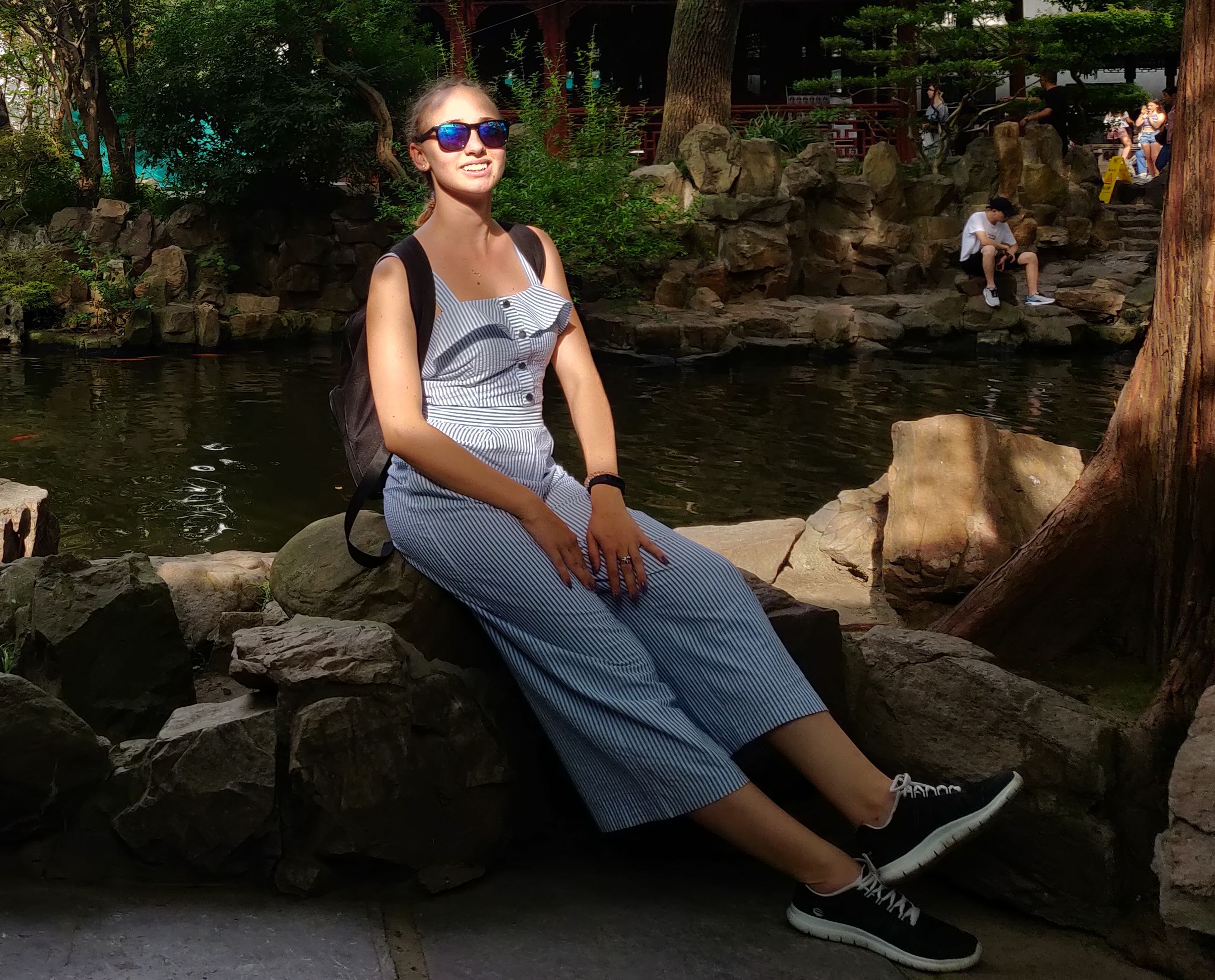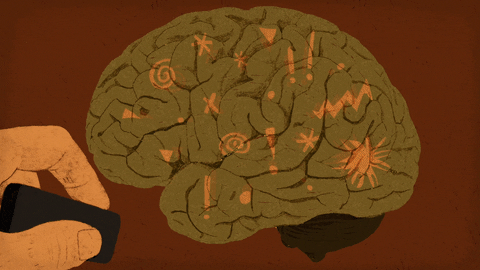5:45 and how being an early bird changed my life

(Photo: Oana Alexandra Miron)
Imagine a warm room in wintertime. Imagine you are there; imagine the dimmed artificial light and the good pasta you could eat while your feet are tucked under a blanket and you’re preparing for a hard-core study session.
This could sound like a recipe for a successful afternoon, and at times it is. But it can also turn into a great break from the study stress, as you open a Netflix tab and watch just ‘one’ episode of your favorite series to break free. One episode probably turns into two episodes, and the delicious pasta… Ahh! …you might crave more. Look at the time: it’s 9 PM and there’s no need to start studying now. It’s simply too late; you won’t focus, and you’ll have to sleep so you can wake up for tomorrow’s classes.
We both know you won’t sleep anyway at the time you wanted because of that great YouTube video and it all goes south from here.
I know, and most of you know, how it is to be in that situation! For many of us it’s hard. It’s hard to break the habit of procrastination and, above all: it’s frustrating.
As you can see from the title, I am trying to break free. Hold on: NO, I am no superhuman and I did not wake up one morning with all the willpower in the world. BUT I did wake up one day fully fed up with procrastination and decided I had had enough.
What did I do then? I wasted one more day of studying! Hurray!
Imagine the dimmed artificial light and the good pasta you could eat while your feet are tucked under a blanket and you’re preparing for a hard-core study session
OK, but this one was useful, it was a full day of research on how to make my day more productive and most importantly on how to quit my unhealthy but heavily tempting habits. And just so you won’t have to do it as well, I will share with you the findings that worked for me.
Note: There are many reasons why someone cannot focus and be productive. These are just my findings and what basically worked for me.
1. Sleep
Apparently, I was living a lie, and I was making this lie up for myself. I believed for so long that I am a ‘night owl’, and that studying at night is definitely ‘my thing’, but it turned out it’s not. Studying at night was just ruining my inner sleeping schedule, making me way more tired during the day, thus leading to loss of focus. What I believe was going on was a fake focus window during the late evening, beginning of the night, which helped, on the spot, but turned out to be of little to no use the following days. I truly felt that during that focus window everything went into my brain perfectly and that it would be ready to be used in my next exam. It was a LIE. This study schedule was only helping me on a short time basis, whereas in the long term, when facing an exam, I ended up finding out I had already forgotten what I had learned one week before.
While researching, I read about the importance of sleep and realized my late-night studying habits might have been a saboteur all along.
While you can find many different ‘best’ approaches to sleep, the one thing that all the articles seemed to have in common was strict commitment to the sleeping hours and consistency. This finding, together with some articles about successful people who wake up before the birds, made me decide to try a seven-hour sleep approach.
The seven-hour sleep approach is, as it sounds, very basic. Find a time that suits you for falling asleep, and a time that suits your schedule for waking up. The chosen times need to be exactly seven hours apart. Once this is settled, just keep those times constant.
For myself, I have chosen the sleep window between 10.45 PM and 5.45 AM, but of course, everyone is different.
Is that crazy? If it is not, at least it sounds crazy. But it sure works, and it improved my productivity.
The most interesting part about the seven-hour sleep approach is that your body adjusts, so after the first four or five days, I woke up with no alarm nudging me, just before my actual alarm went off.
Also, now I can start studying around 9 AM and I can remember what I have learned for longer periods of time. I truly feel my brain being more active when encountering already studied concepts or subjects. This is what I call the 5.45 miracle!
2. Calendar
The internet recommends noting down what you wish to accomplish in a day or in a week. Great! Having notes always came easily to me. Just one issue: I was constantly losing my ‘to do’ lists or just forgetting about them. A calendar app is what helped more than a lot in this case.
There are many calendar apps, in many colors, shapes and forms so you can just pick the best one for you. For me, the most important aspects when picking an app were: notifications and colors.
I add everything to my calendar: when I eat, when I work, when I study – everything! And getting the notifications just helps me stay on track. Which is awesome! Staying on track is awesome!
Now the colors have a slightly more basic reasoning behind them: I need the app to be appealing! I need to like and enjoy the look of the app so I can continue using it and continue adding my plans in it. So, if you don’t really care about the appealing side of apps, just find something that suits you.
As I said, you should not have to waste an entire day on looking for apps and whatnot; just check some of the ones listed here:
3. Sport
OK. It sounds like a little effort needs to be put into a few changes in order for me and you to use our time more efficiently and effectively. But being productive and squeezing the most out of our time sounds like a great prize for that effort. Well, there are many more lifestyle changes that can be implemented just so the effort equals the prize. The one I chose next is sport. Yes, sport!
I hit the gym four to five times a week now, and it’s not easy. But it is a mechanism. I allocated the gym time in my day, just after waking up. It sounds harsh but it is for a good cause. I need to stop checking my phone immediately after waking up. NEED TO. My eyes hurt, my head aches, my entire body is still tired by the time I actually get out of the bed, when I immediately check my phone.
Knowing that I must hit the gym and be done with it all by 8 AM adds just the right amount of pressure for me to stop checking my phone and jump out of bed faster.
I also stick to short but alert training sessions in order to really wake up every cell in my body and be ready for a full day. If you think ‘no chance in hell that feels good!’ just grab your gym clothes in the morning and see for yourself.
Hold on: NO, I am no superhuman and I did not wake up one morning with all the willpower in the world. BUT I did wake up one day fully fed up with procrastination and decided I had had enough
Final note:
Changing your ways to become more productive is not as easy as it sounds, and I’m definitely no expert. Some days, I do well… some weeks I am amazing… but there are days where the strength to stick to a schedule is probably on a holiday, leaving me all alone and in no mood for doing a great job.
And if you do try but fail sometimes, don’t be discouraged, just take small steps until you get back into your new routine. Keep it going with small changes here and there, and you will see that baby steps towards productiveness will take you pretty far most days☺
I hope to have spread a little bit of motivation around and would love to hear if you have any other tips and tricks on how to become more productive.
Some inspiration links I used while figuring out efficiency and productivity:
- The science of sleep / Science: Human body and mind – BBC
- Yes, You CAN Sleep Too Much—Here’s Why Oversleeping Is A Problem by Dr. Michael Breus
- I’m convinced that exercising in the morning has transformed my productivity, and research backs me up by Adam Barsouk
- Master Your Time: 5 Daily Scheduling Methods to Bring More Focus to Your Day by Stephen Altrogge




































































































































Comments